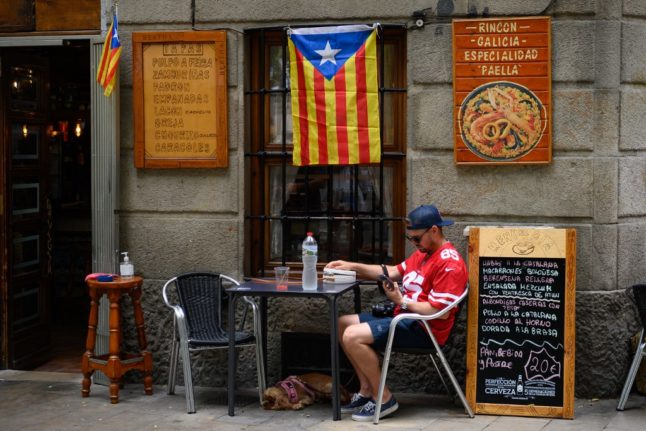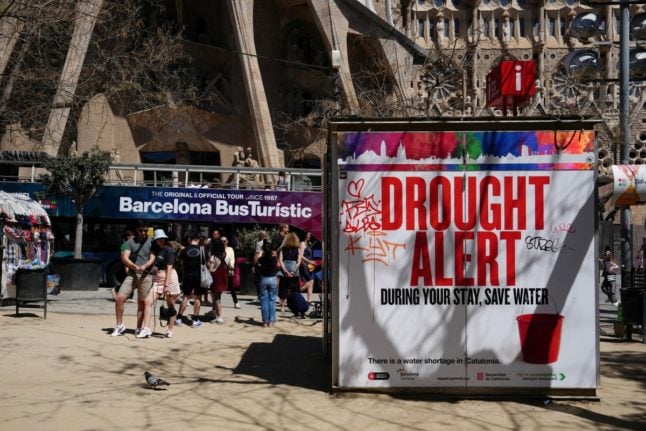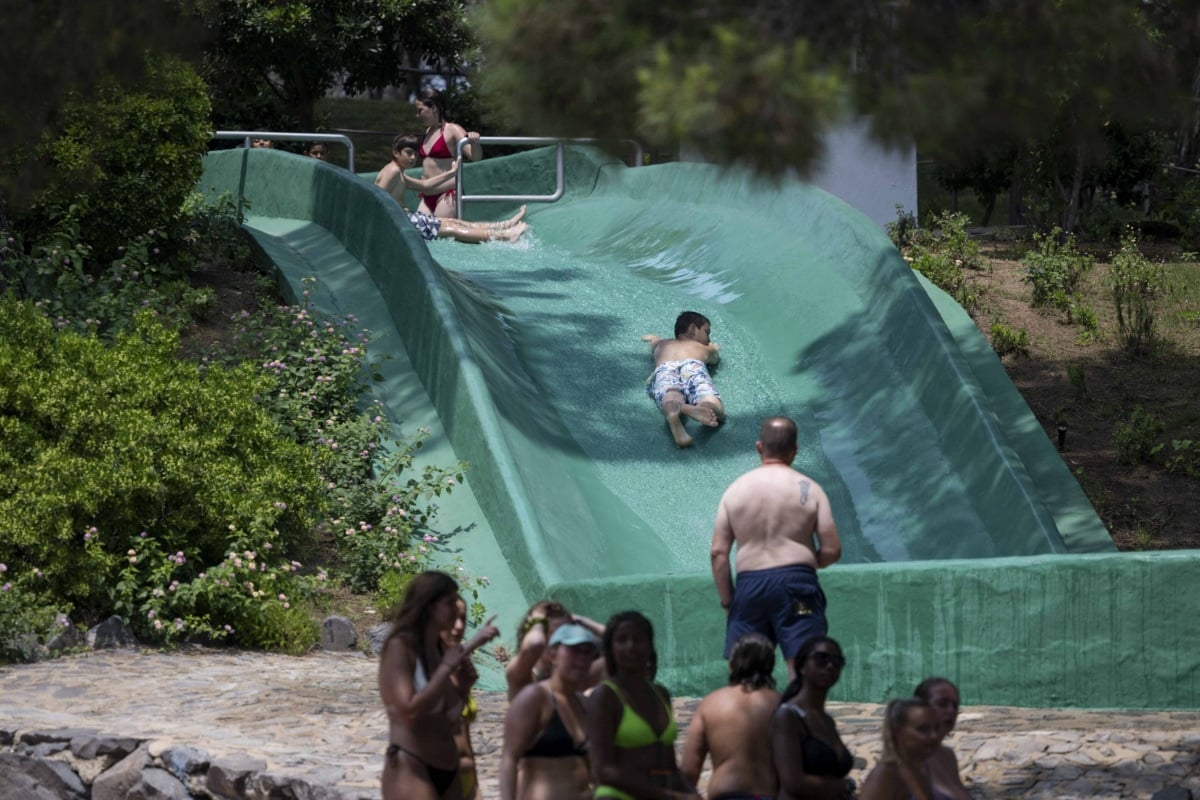People eating out alone are a rare sight in Spain, as sociable Spaniards consider the practice a gastronomic faux pas no different from eating at one’s work desk or while walking.
But the fact that some restaurants in Barcelona have started turning away diners wanting to enjoy a meal on their own in favour of bigger groups (particularly of tourists) has angered locals in the Catalan capital.
“What is this shit?” tweeted angrily Catalan journalist Mayka Navarro upon reading the news.
Pero que mierda es esta…
Prohibido cenar solo: restaurantes de Barcelona impiden sentarse sin acompañantes https://t.co/MlqZeYXedb vía @el_pais
— Mayka Navarro 🐕🐕 (@maykanavarro) August 4, 2023
“How can you be rejected for eating alone at a restaurant? Civilization is at stake,” fellow journalist Alejo Schapire joked.
The ban on solo diners is reportedly becoming more common in central Barcelona, especially on Carrer de Blai in the Poble Sec area, and in Barcelona’s Eixample neighbourhood, according to Spanish daily newspaper El País.
Restaurant staff are simply refusing to sit customers on their terraces or inside their establishments if they’re coming in for dinner on their own, or giving them excuses such as that they’re fully booked.
Solo diners who are ‘lucky’ enough to get a table may still be stuffed away in a corner, or by the bar, kitchen or toilets.
Speaking to El País, one disgruntled local explained that he tried several local restaurants in the same evening, only to be turned away by all of them.
”I didn’t want to go to a specific place, just sit on the first terrace I could find because I wanted to read something while I dined al fresco,” he says.
”At the first terrace I got a table, a waiter quickly arrived and told me it was reserved. It wasn’t. As soon as I got up, a group of guiris who were behind me sat down.’
‘Guiri’ is a common Spanish word (often used pejoratively) to refer to foreigners, usually northern European tourists such as Britons and Germans.
READ ALSO – Is the Spanish word ‘guiri’ (foreigner) offensive?
”At the next one, they warned me that I would only have 20 minutes,” the man continued. ”I specified that I wanted dinner, but they insisted that I should do it in that time frame. So I got up and in the third and last one, already the last one in the street because there were so many people, they told me directly that the terrace was only for groups.”
The solo diners ban follows news some months ago of a famous 125-year-old deli in Barcelona that has put a sign in its window saying it will charge visitors €5 if they just want to go inside to look and take photos, but not buy anything.
The rationale is financial. Put simply, bigger tables of groups of three or four or more are more profitable than lonesome diners.
More often than not these larger groups are tourists, groups more likely to spend than locals.
Other locals have pointed out that waiters are literally timing with a stopwatch how long customers remain sat on their terraces, with a limit of 45 minutes.
L'altre dia a la terrassa d'un bar a Barcelona:
– Podéis sentaros pero tenéis que iros en 45 minutos.
– Per què? Tanqueu ja?
– No, es el máximo de tiempo en la terraza, hacemos turnos.
– Adeu-siau.Fiqueu-vos el Port Aventura Barcelona Experience aquest per on millor us càpiga.
— Patrick Urbano (@PatrickurbanoR) August 4, 2023
READ ALSO: Is it legal for bars in Spain to place time limits on customers?
The intense tourist presence in Barcelona has long been a thorny issue in the Catalan capital, with residents complaining that holiday lets cause a spike in the rental market, that holidaymakers swarm their favourite spots and that partying tourists have tarnished the image of the city.
Apart from the prohibition of solo dining, bars and restaurants are also adapting their timetables to the earlier eating habits of foreigners as opposed to traditional Spanish customs.
When many locals would go for a pre-dinner drink, say around 7 or 8pm, as is customary across Spain, terraces in central Barcelona are now increasingly filled with tourists having an early dinner.
Even later into the evening, when some locals want to eat dinner alone in their local bar, groups of tourists are now taking priority on the terraces.
READ ALSO – Historic Barcelona shop charges tourists who look but don’t buy




 Please whitelist us to continue reading.
Please whitelist us to continue reading.
Member comments